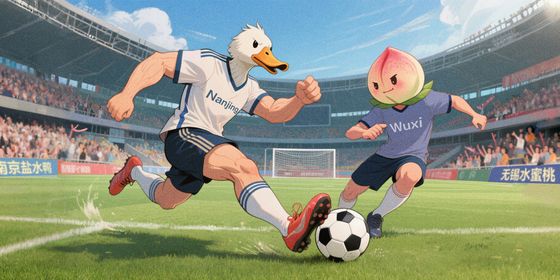Having a big personality on the internet may get you labeled a “spirit”
The transformation of animals into immortals, or “成精” (chéng jīng, become spirits), is common in classical Chinese literature. Snake spirits are found in “The Legend of the White Snake;” spider, rabbit, and scorpion spirits appear in Journey to the West; and fox spirits are all over Pu Songling’s Strange Tales from a Chinese Studio. Though the character 精 (jīng) usually refers to supernatural beings, it is now often used to describe people with vexing personalities.
Consider “戏精” (xìjīng, drama spirit): Like the English expression “drama queen,” this type of spirit is apt to overreact. If there is not enough going on in their lives, they will 给自己加戏 (gěi zìjǐ jiā xì, make a scene for oneself). Celebrities who pull publicity stunts are often called “drama spirits” as a backhanded compliment. During the 2015 Academy Awards, Chinese actress Huang Shengyi claimed that she had been scheduled to walk the red carpet with actor Tom Hanks, but had fainted backstage and missed the show. As Huang was not even listed as a presenter or nominee, netizens noted:
What a drama spirit! She was totally making a scene for herself!
Zhēn shì ge xìjīng! Tā wánquán jiù shì zài gěi zìjǐ jiā xì!
真是个戏精!她完全就是在给自己加戏!
Another popular term is “杠精” (gàngjīng), roughly translated as “bicker spirit.” Using the second character from 抬杠 (táigàng, to argue for the sake of arguing), this term describes a type of contrarian often found trolling others on social media. After reading the post, “This is the best steak in the world,” a “bicker spirit” might haughtily comment, “Have you tasted all the steaks in the world?”
The original poster may retort:
Are you a bicker spirit?
Nǐ shì ge gàngjīng ma?
你是个杠精吗?
Some netizens have envisioned the outcome of a battle between a xijing with a gangjing, concluding that the latter will always gain the upper hand:
Xijing: I’ve been promoted and now earn 50,000 RMB, but I’m at a loss how to spend the money.
Zuìjìn shēng zhí, gōngzī zhǎng dào wǔ wàn, fǎn’ér bùzhīdào zěnme huā le.
最近升职,工资涨到5万,反而不知道怎么花了。
Gangjing: I wouldn’t know. I’ve never earned so little.
Wǒ yě bùzhīdào, méi náguò nàme dī de gōngzī.
我也不知道,没拿过那么低的工资。
Another internet immortal is the “猪精” (zhūjīng), or “pig spirit.” Rather than describing Journey to the West’s porcine hero, this is a derogatory term that means “fat and ugly.” Some women might claim to be “猪精女孩” (zhūjīng nǚhái, pig spirit girl) to fish for compliments. However, it is offensive to call someone else a pig (unless it’s Peppa Pig—but that’s a whole other story.)
If this is too much spirit talk, don’t worry: The government agrees. The phrase “建国后不许成精” (jiànguó hòu bùxǔ chéng jīng, becoming an immortal is not allowed after the founding of the PRC) satirizes the official disapproval of “feudal” superstitions. In 2014, it was rumored that TV shows set after 1949 could no longer feature any animal spirits. Though this rumor proved untrue, the expression went viral and is often used to describe exceptionally cute or smart animals:
This kitty can open the door by itself! I thought no one was allowed to become an immortal in the PRC!
Zhè zhī xiǎomāo huì zìjǐ kāimén! Bú shì shuō jiànguó hòu bùxǔ chéng jīng ma?
这只小猫会自己开门!不是说建国后不许成精吗?
Spirits of the Age is a story from our issue, “The Masculinity Issue.” To read the entire issue, become a subscriber and receive the full magazine.













